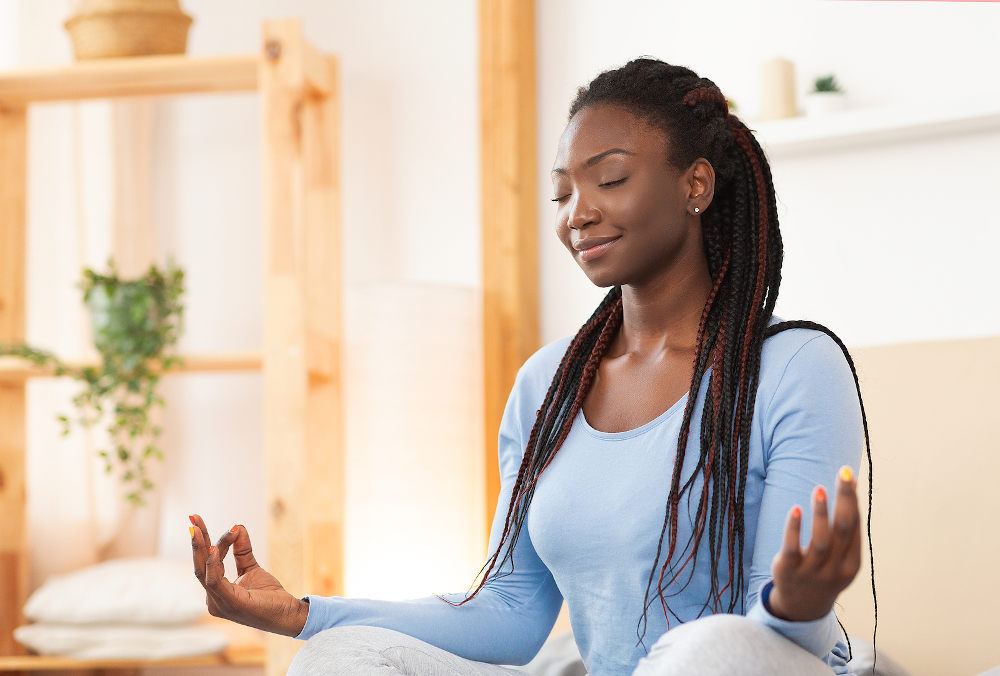Feeling hormonal? You’re not alone. With millions of women around the world suffering from PMS and PMDD each month, it’s a common complaint that reaches far and wide – but did you know that there are other hormones that could be impacting your overall health and wellbeing in ways that you might not even be aware of?
Hormones have an enormous impact on our well-being, so keeping them in tip-top condition is essential to your overall health. The endocrine system comprises glands that produce hormones that regulate everything from sleep and sexual function to mood, reproduction, development, and metabolism – so if even one is out of balance then you’ll likely suffer some unwanted side effects.
When equilibrium is disturbed and one or more or your body’s major hormone-producing glands is unable to function efficiently, disease and illness can develop – with common conditions including hypothyroidism – where the thyroid doesn’t function at optimal levels – to polycystic ovary syndrome – a condition that arises when a woman’s body produces too much testosterone, and that can lead to a range of symptoms including decreased fertility.
The human growth hormone (HGH), is one of the most important hormones in the body, and is responsible for a multitude of different functions and processes. The effects of HGH on women help the body to build, repair and maintain healthy tissues and skin, but too little of it, and you may find yourself suffering from lack of sleep and a surplus of endocrine-disrupting chemicals, which can lead to various other unsavoury issues later on.
Whichever way you slice it, hormonal imbalance is not pretty, so it’s important that we do what we can to keep things in check. Here, we take a look at four practices that can help to promote healthy hormone balance.
Manage stress in healthier ways

Research has found that increased stress levels can cause hormonal changes and increase the risk of thyroid conditions, endocrine disorders, obesity, and adrenal dysfunction. Modern life can be stressful, but the good news is that there are healthy ways to deal with kids, home life, bills, and work-related stressors.
In today’s fast-paced world, it’s vital that we find ways to de-stress after a long working day or week, and listening to guided meditation or spending a few minutes taking care of your skin each night can make for some simple yet effective way to decompress before you go to sleep.
Another way to keep your mind positive and manage stress is to spend some time sitting quietly and visualising your goals each day. Defining your long-term and daily goals and writing them down can keep you focused and on pace, and reduce the threat of overwhelm.
Implement a consistent bedtime routine

Sleep is crucial for all aspects of health, including the efficient functioning of the endocrine system, and influences the release of hormones from the pituitary gland. Researchers have done several studies to examine the impact of partial sleep deprivation on immune function, metabolism, and hormone production – and suffice it to say, the results weren’t pretty.
Sleep deprivation has been shown to increase stress levels in the evenings, causing excessive worry when we turn out the lights and resulting in a domino effect that can make the problem long-term. Partial sleep loss and elevation of hormone cortisol levels are likely to trigger insulin resistance and expose you to the risk of comorbidity obesity, while insufficient shut-eye can also affect leptin, a hormone produced by the body to suppress appetite and signal brain satiety.
Inadequate leptin can cause difficulties in adopting a healthy eating pattern – causing a drastic decrease in leptin production. In addition, sleep deprivation can trigger the production of ghrelin, a hormone that stimulates appetite. Sleep contributes to the overall health of our brain and the rest of the body – so when it comes to implementing a relaxing night-time routine and improving your sleep hygiene, few things are more important.
To ensure you get your full eight hours, turn off all electronic devices at least an hour before you go to bed. Blue light can disrupt our circadian rhythms and make it more difficult to drift off, and can also make it more difficult to sleep all the way through the night. Try a long, hot bath or shower before bedtime and do a sleep meditation, or try fragrancing your room with lavender to aid relaxation and rest.
Get regular exercise

Exercise is one of the most effective stress management techniques out there, and can help you not just to regain a sense of calm, but improve your sleep quality, too.
But there’s no point in forcing yourself to engage in physical activity you don’t enjoy, so not only will it become a burden, but you also won’t reap those all-important stress-busting benefits. If you hate running, then attending a dance class may be better than jogging around the neighbourhood – the key is to find something that you look forward to, rather than dread, so try a few different things in order to find what works for you.
If you find yourself short on time, get creative and squeeze movement and stretching in where you can. Health professionals recommend at least two hours of moderate-intensity activity per week.
Eat a balanced diet

There are many diets out there that promise to help achieve hormonal balance – but be wary, because not all of them are the best choices when it comes to your overall health. Instead, experts recommend developing intuitive and optimal eating habits that place you in control of your choices, and that ensure that you’re eating a varied and balanced diet that includes all food groups.
Experts often recommend a Mediterranean diet, but it’s important to find a nutritional balance that works for you. A dietitian will help you find an eating plan that aligns with your goals, so be sure to consult one if you’re unsure where to start.
The bottom line
Hormonal balance can have a profound impact on our emotional, physical, and mental health, but imbalances are becoming increasingly common due to the lifestyles we live today. As we age, the risk increases further still, so it’s wise to get a handle on yours now to set you up for a healthier, happier future. Thankfully, it doesn’t have to be complicated, and these four tips will set you off on the path to success, and we guarantee you’ll feel better for it in all areas of your life.






















